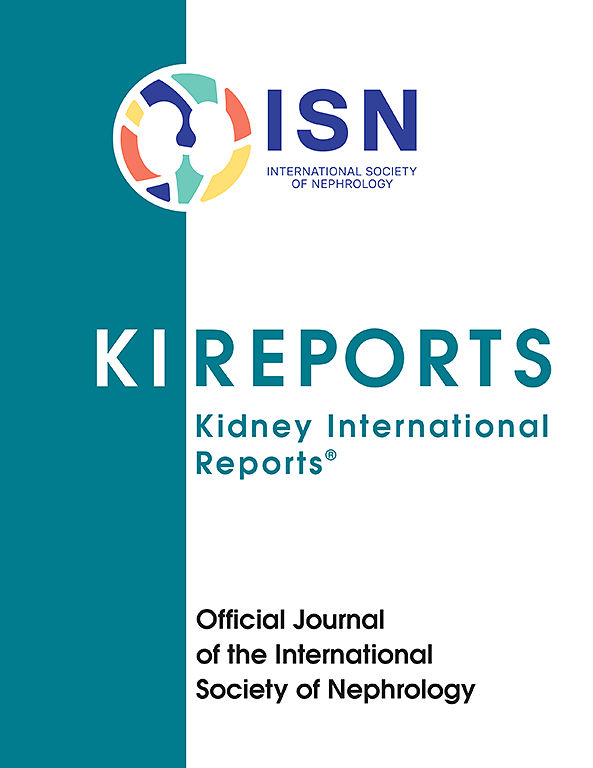APOL1 Genotype and HIV Infection: 20-Year Outcomes for CKD, Cardiovascular Disease, and Hypertension
IF 5.7
2区 医学
Q1 UROLOGY & NEPHROLOGY
引用次数: 0
Abstract
Introduction
APOL1 variant alleles substantially increase the risk for chronic kidney disease (CKD) in Black individuals, especially in the setting of HIV infection; however, their impact on hypertension and cardiovascular disease (CVD) is unclear.
Methods
Black persons with HIV (n = 1194) followed in the AIDS Clinical Trials Group (ACTG) observational studies A5001 and A5322 were genotyped for APOL1 risk alleles. Cox proportional hazard models were used to assess associations between APOL1 genotype and incident CKD, CVD, and hypertension, and linear mixed effects models were used to examine associations with longitudinal estimated glomerular filtration rate (eGFR) and proteinuria. Plasma HIV-1 viral suppression was evaluated as an effect modifier.
Results
APOL1 genotype was associated with CKD, but not with hypertension or CVD, although CVD events were infrequent in this relatively young cohort. Annual rates of eGFR decline and proteinuria were greater among persons with APOL1 risk alleles, including a detrimental effect of 1 APOL1 risk allele, which only became evident in the second decade of follow-up. Sustained HIV-1 viral suppression did not alter the association between incident CKD and APOL1 genotype; however, it was associated with a slower rate of eGFR decline and less proteinuria in participants with at least 1 APOL1 risk allele, including individuals with eGFRs above the CKD threshold throughout follow-up.
Conclusion
Among treated persons with HIV, APOL1 risk alleles were associated with CKD and eGFR decline, including an effect of 1 APOL1 risk allele which took longer to manifest and was greater in individuals who did not achieve sustained viral suppression. Conversely, no association between APOL1 risk alleles and incident hypertension or CVD was detected.

求助全文
约1分钟内获得全文
求助全文
来源期刊

Kidney International Reports
Medicine-Nephrology
CiteScore
7.70
自引率
3.30%
发文量
1578
审稿时长
8 weeks
期刊介绍:
Kidney International Reports, an official journal of the International Society of Nephrology, is a peer-reviewed, open access journal devoted to the publication of leading research and developments related to kidney disease. With the primary aim of contributing to improved care of patients with kidney disease, the journal will publish original clinical and select translational articles and educational content related to the pathogenesis, evaluation and management of acute and chronic kidney disease, end stage renal disease (including transplantation), acid-base, fluid and electrolyte disturbances and hypertension. Of particular interest are submissions related to clinical trials, epidemiology, systematic reviews (including meta-analyses) and outcomes research. The journal will also provide a platform for wider dissemination of national and regional guidelines as well as consensus meeting reports.
 求助内容:
求助内容: 应助结果提醒方式:
应助结果提醒方式:


